Guardians of authenticity: Inside BAPP's mission to purify the botanical supply chain
Ten years after winning NBJ’s Education Award, American Botanical Council’s Botanical Adulterant Prevention Program continues to fight the good fight.
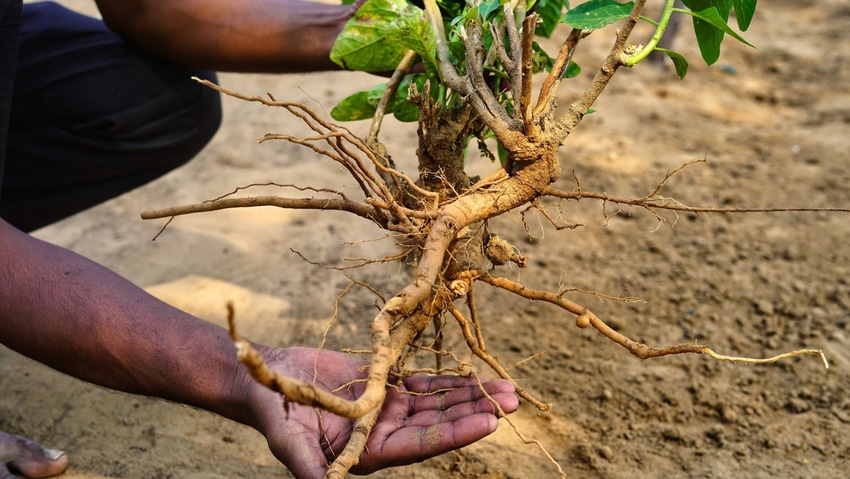
This article originally appeared in Nutrition Business Journal’s Tech Issue.
Ten years ago, when Nutrition Business Journal recognized the American Botanical Council (ABC) with an Education Award for its three-year-old Botanical Adulterants Prevention Program (BAPP), it cited “a refreshing willingness to ruffle some feathers with a series of well-researched reports on adulteration.”
Since that time, BAPP—which was founded in partnership with the American Herbal Pharacopoeia and the National Center for Natural Products Research at the University of Mississippi—has continued to poke at the industry’s vulnerabilities with peer-reviewed research papers confirming the presence of adulterated, fraudulent ingredients and mislabeled raw materials, extracts and essential oils; laboratory guidance documents; an e-newsletter monitoring botanical adulterants; bulletins about adulteration of specific ingredients and evaluating laboratory test methods; articles in ABC’s journal HerbalGram; alerts on its LinkedIn page; and “Herbcast,” a podcast about combating adulterants hosted by ABC founder Mark Blumenthal.
“We are having an impact,” Blumenthal says, explaining that quality control executives are using BAPP’s publications to set and revise ingredient specifications, and those specifications can result in rejected shipments and manufacturers switching to more responsible suppliers. “That means that hundreds of thousands, possibly millions, of consumers are getting a better-quality ingredient than they would have before.”
In a survey BAPP sent last year to industry representatives, nearly half said they had implemented new quality control measures because of BAPP publications; 15 revised their ingredients specifications, and 18 changed ingredient suppliers.
“BAPP provides industry stakeholders with the knowledge and analytical methods necessary to detect adulteration and authenticate botanical ingredients,” says Andrea Zangara, head of scientific communication and medical affairs for Euromed. “This not only protects the health and safety of consumers, but also preserves the reputation of responsible companies within the industry.”
BAPP’s efforts are paying off, says Stefan Gafner, ABC’s chief science officer and BAPP’s technical director, but its work is far from done. “With all that we try to do, there’s still a lot of adulterated ingredients on the market—more than I would like to see.”
Exposing the criminals
BAPP launched in 2011 with an HerbalGram article by the late botanist and medicinal plant photographer Steven Foster, who received the Education Award posthumously in 2022. Foster provided examples of adulteration, counterfeiting and fraud in botanical materials dating back to Greco-Roman times. “Since the memorable occasion upon which young Eve palmed off the green apple on old man Adam, more or less fraud in food handling has occurred, as opportunity has offered and occasion for profit has suggested,” Foster wrote.
A group of industry leaders concerned about unpublished lab reports of adulterated ingredients approached Blumenthal at SupplySide West in 2010 and asked ABC to implement a peer-reviewed, scientifically oriented testing lab. ABC’s board of directors, concerned about embroiling the nonprofit in legal issues, was against that idea. “So, I said, ‘OK, how about plan B?’” Blumenthal says. “How about if we just educate people about the extent of adulteration or the type of adulteration that we’re able to document in the marketplace based on what’s already published in the literature and, in some cases, maybe unpublished data from laboratories? And the board said fine, that’s fine.”
To that end, Gafner scours scientific and industry journals for articles about adulterated ingredients as well as cases of dilution—he’s heard stories of suppliers selling valerian extract that was 99.75% maltodextrin—and fortification. “For example, we’ve seen synthetic caffeine sold as natural green coffee extract,” he says.
Last year, Gafner published an article detailing attempts to deceive commonly used analytical methods for authenticating herbal dietary and food ingredients in the Journal of Natural Products, stating that increased demand, price increases and supply shortages have “provided a fertile landscape for fraudsters to sell adulterated materials.”
“Most often, such adulteration is carried out for financial gain, where ingredients are intentionally substituted, diluted or ‘fortified’ with undisclosed lower-cost ingredients,” he writes. “While some of the adulteration is easily detected with simple laboratory assays, the adulterators frequently use sophisticated schemes to mimic the visual aspects and chemical composition of the labeled botanical ingredient in order to deceive the analytical methods that are used for authentication.”
Fraudsters sometimes remove the valuable constituents from cut or powdered plant materials before selling them, add natural or synthetic dyes, or substitute pigmented extracts with colorants from the same compound class, Gafner writes. He cites examples of cistaceae, olive, hazelnut and myrtle leaves being used as bulking materials for oregano; red-colored corn stigmas, pomegranate fruit peel and safflower stigmas being presented as saffron stigmas; powdered beechnut husks aromatized with cinnamaldehyde to adulterate cinnamon bark powder; and synthetic methyl salicylate being added to wintergreen and birch oils.
Blumenthal says Gafner’s paper is groundbreaking because it is the first to identify how unscrupulous suppliers—“and let’s call them what they are, they’re criminals”—are deceiving the industry’s standard test methods to provide fraudulent ingredients. “We can’t get ahead of these people because that would be teaching them how to do it, by definition,” he adds. “But we try to be one or two steps right behind them to let people know what’s going on.”
Irreparably defective articles
One of BAPP’s boldest, and most controversial, initiatives is its Best Practices Standardized Operating Procedure (SOP) for the Disposal/Destruction of Irreparably Defective Articles, released in 2022. The voluntary standards were created to guide buyers in the herb, supplement, food, cosmetics and OTC drug industries on how to remove any ingredient deemed by analytical lab testing to be an “irreparably defective article.”
“The term ‘irreparably defective article’ is a new regulatory term that we created for this SOP because it didn’t exist before,” Blumenthal says. “There was a hole in the U.S.’s and other countries’ GMP with respect to what a company is supposed to do once they go through the normal QC process and it renders an ingredient irreparably defective for human use.”
Industry pushback has stemmed mostly from misinterpretation of what “irreparably defective” means, Blumenthal adds. “Something can be out of specification because it’s the wrong color or the wrong particle size, or a supplier may simply send the wrong stuff by mistake. That is out of specification, but it’s certainly reparable under the law. It can be fixed, upgraded, ground down—a lot of different things. But ‘irreparably defective’ means that product contains lead chromate to make it look more yellow or has added ingredients for the sake of trying to fool the analytical method. It could potentially be toxic, and it needs to be taken out of the supply chain.”
NOW Foods, which has developed its own adulteration screening method as well as a comprehensive vendor qualification program, helped write the SOP and includes language from it in its quality agreements with vendors. �“So, we have that level of understanding and mutual agreement that we are going to destroy the material if it’s adulterated or contaminated because it should not re-enter the marketplace,” says Katarzyna Banaszewski, NOW Food’s senior director of quality.
Some people think it’s crazy to destroy materials that could potentially be usable, Banaszewski adds, and others simply don’t consider what happens to defective materials to be their problem. “They say, ‘I’m returning it to the vendor. I don’t care what they’re going to do with it.’ But the problem is much bigger than that. Because once we have a program in place to prevent those materials from re-entering the marketplace, it is going to eventually weed out the bad players. The more companies that practice this, the less of an occurrence this issue is going to have because no one is going to buy material that is already compromised.”
Magnifying the message
BAPP’s initiatives build consumer confidence and improve the overall quality of botanical supplements, significantly impacting the industry in all aspects of its work, Zangara says. “BAPP promotes credibility and integrity throughout the industry.”
Tom Dubinksi, vice president of quality systems for Arizona Nutritional Supplements, says the company’s involvement with BAPP has not only helped it better identify adulteration risks but also allowed it to forge stronger partnerships with customers “as we continue to show the transparency within our supply chain and commitment to using high-quality ingredients for our products.”
Gafner is grateful for the contributions industry leaders and scientists make to BAPP’s work, and his goal is to expand on these efforts to extend the organization’s influence as far and wide as possible. He posts BAPP articles and bulletins on ResearchGate, which is widely read in India, Indonesia and China, and speaks about BAPP’s work at conferences in Europe and the U.S. He also enlists scientists and industry leaders to write and review BAPP documents, ensuring they’re objective and independent.
Over the years, Euromed has contributed analytical and expert insights to BAPP’s body of work, with particular emphasis on saw palmetto, “where authenticity and purity are paramount,” Zangara says. In 2018 and 2019, Euromed collaborated with BAPP to co-host two European workshops on strategies to combat botanical ingredient adulteration, and it’s in the process of planning a follow-up symposium. “This partnership has enhanced our reputation as a trusted supplier,” Zangara adds.
Ultimately, Gafner says, it’s important for BAPP to reach as many wide and varied audiences as possible. “That’s one thing I talk about with Mark quite often: how we can educate other constituents—not just ABC members—because sometimes it feels like we’re just preaching to the choir.”
Stay up to date on the rapidly changing industry by subscribing to Nutrition Business Journal.
Read more about:
SupplySide partner updatesAbout the Author(s)
You May Also Like

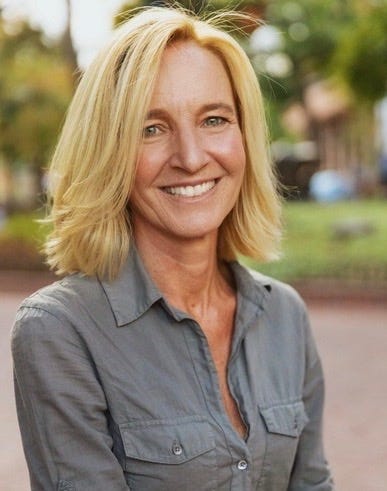

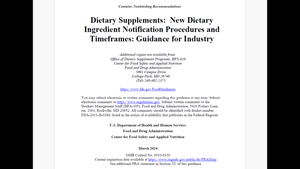
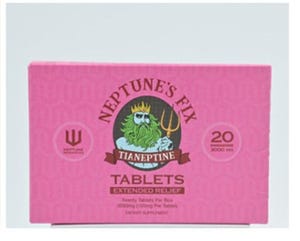
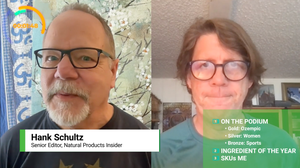
.png?width=800&auto=webp&quality=80&disable=upscale)